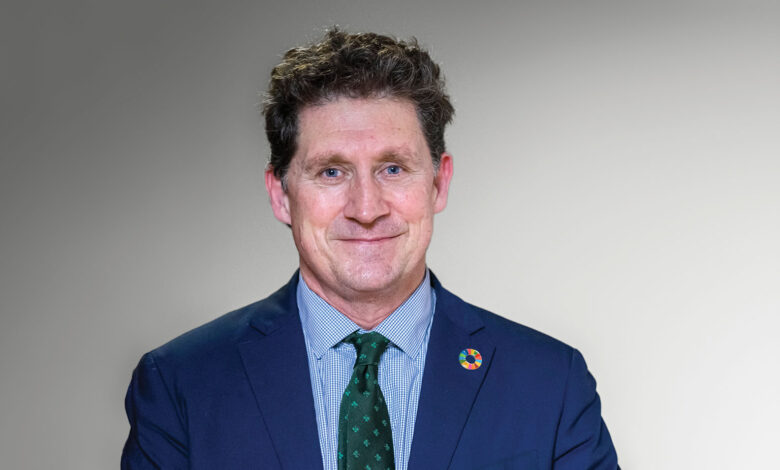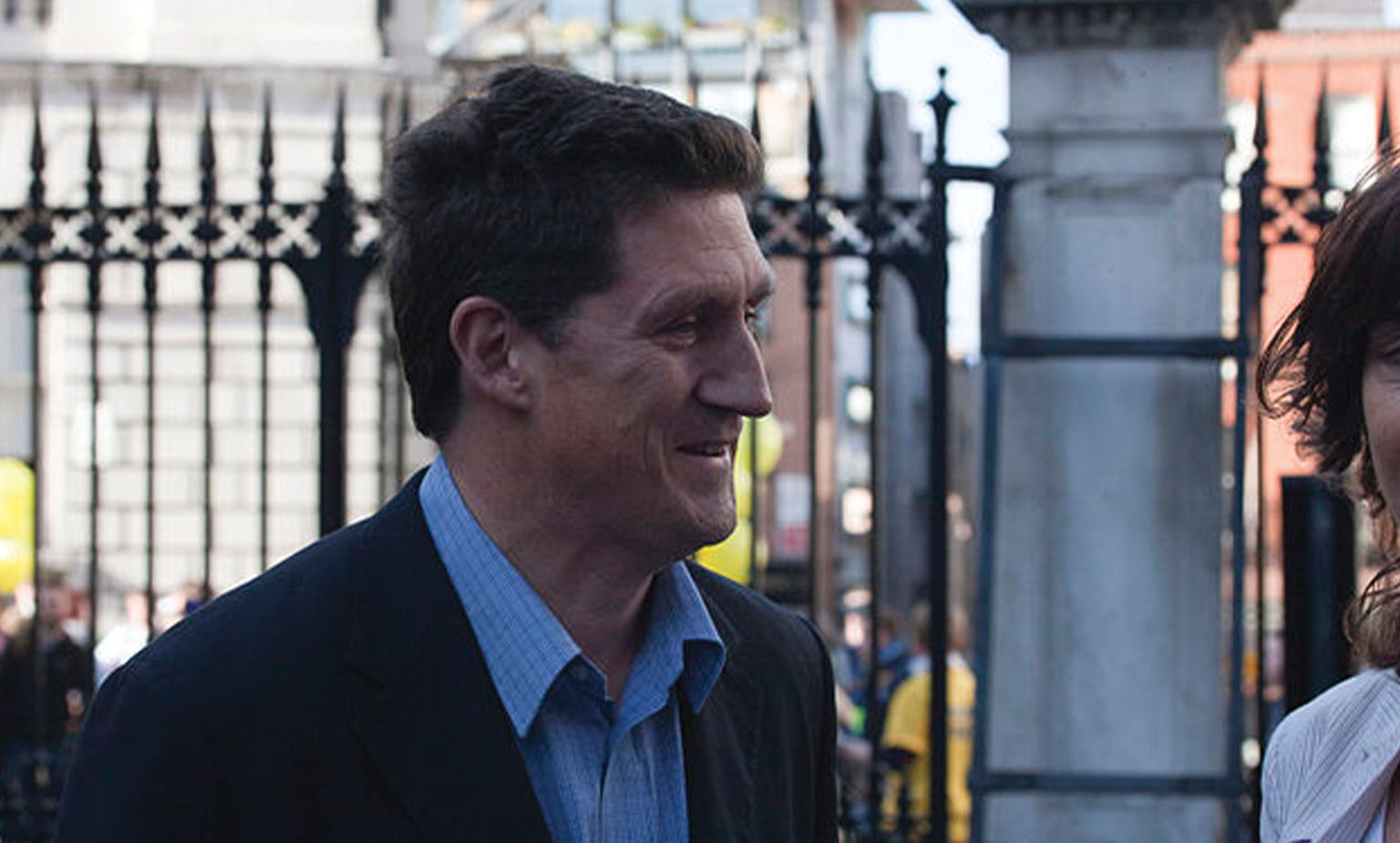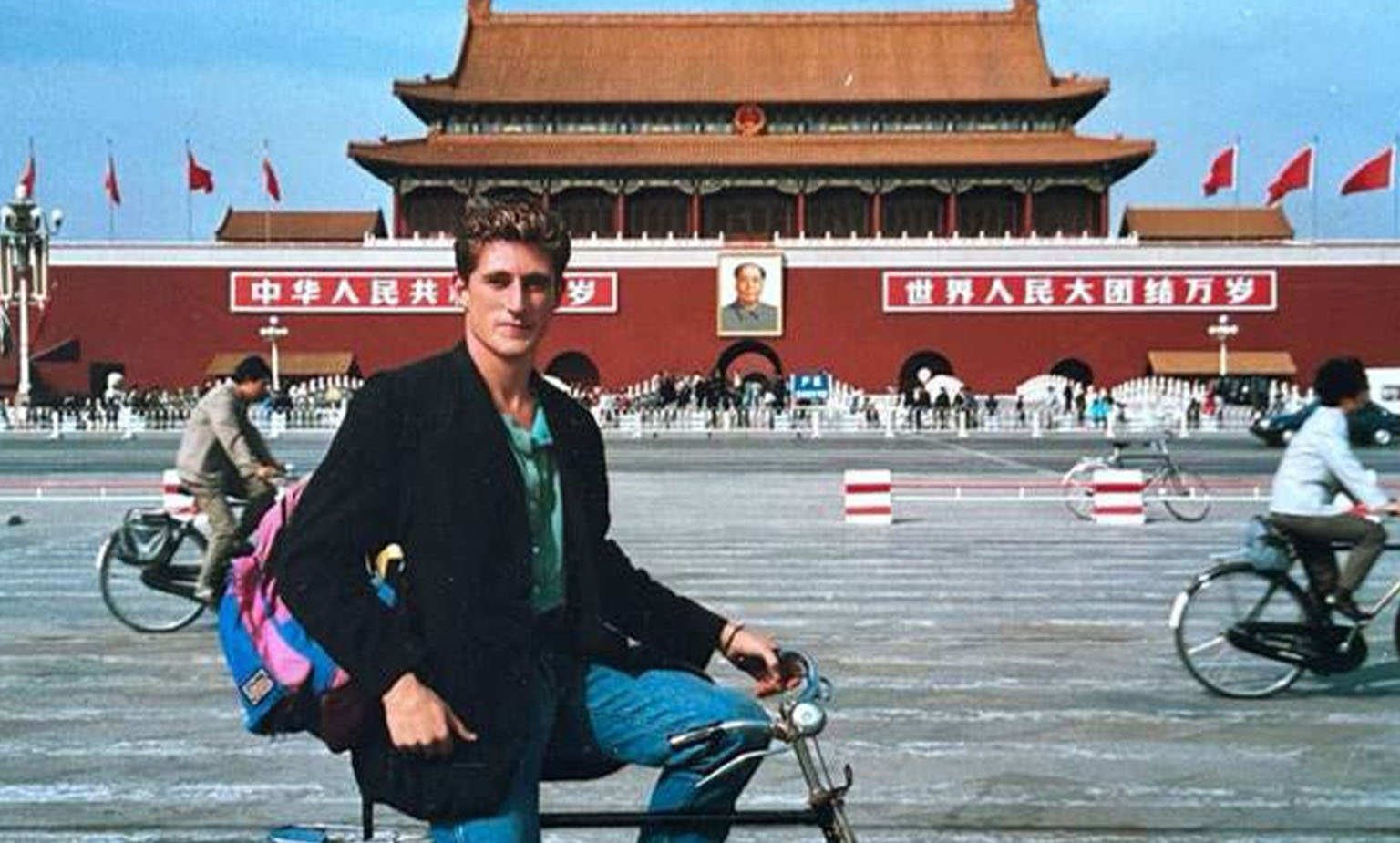Eamon Ryan TD: The Green Party’s most successful leader

Over his 13-year leadership, Eamon Ryan TD had been credited with guiding the Green Party “back from the wilderness”. Five days before he announced his resignation as party leader, Ryan sat down with Joshua Murray to offer his reflections on his time leading the Green Party in government.
Remaining in post as Minister for the Environment, Climate and Communications and as Minister for Transport, Ryan cites the Climate Action Plan, the National Retrofit Scheme, as well as progress made on forestry as his proudest achievements in government, all of which occurred in his second spell in cabinet from 2020 onwards.
The now former Green Party leader had previously served as Minister for Communications, Energy and Natural Resources between 2007 and 2011, but the resignation of Green Party ministers in 2011 from the Brian Cowen-led coalition of Fianna Fáil-Greens-Progressive Democrats led to the collapse of the government and the wipeout of the Green Party in the 2011 election.
Replacing John Gormley as party leader in 2011, Ryan has been the most successful leader in the 43-year history of the Green Party. In his time as leader, the party secured a record 12 seats in the Dáil in 2020, alongside two seats in the European Parliament in 2019 on a record share of the vote.
While the successive polls and recent European and local election results paint a slightly less optimistic vision for the party, Ryan is adamant that entering coalition has been worth the sacrifice of electoral decline.
“We are seeing 1,000 homes retrofitted every week, which means better homes for people. In addition, the fact that 100 houses per day are putting solar panels on their roofs just demonstrates that it is practical improvements and quality of life which is the real measure of progress, and I think we have done a lot in that regard.”

Although disappointed by the party’s performance in the local and European elections, Ryan has since stated that his decision to resign as party leader was made “a while ago” and was due to personal reasons.
“I cannot continue to work the long hours that being a public representative involves which is why I’m not standing again in the next general election,” Ryan told RTÉ.
“I have parenting commitments at home which I also want to serve. We have a son with special needs who also requires my attention.”
On the local and European elections, he says: “It was not terrible, but I was hoping to do better and – particularly in the council election – it is that cadre of really good and experienced councillors who have lost their seats, or really talented people on the up who did not quite make it.
“We ran a good campaign, but the tide – like a lot of places in Europe – has been slightly waning on environmental justice in this last year or so. That will turn and come back in, but it was difficult.”
Activism
Ryan is one of the most recognisable public figures in Irish politics, having been in and out of the Dáil since 2002. When he joined the Green Party in 1988 at the age of 25, however, he was unemployed and facing challenges in his personal life. The outlet of political activism, he reflects: “Helped me get my confidence back and my energy back through working in the campaigns.
“I also found a home where I agreed with the ethics and the ethos around peaceful politics, ecological imperative, social justice, and democratic constitutional politics.”
Expanding on the origin of his green ethos, Ryan says: “For the decade before [1988], I had been very ecological in my thinking. I was inspired by books like Silent Spring by Rachel Carson, the 1972 Limits to Growth report by the Club of Rome, and the Gaia Theory by James Lovelock.
Describing himself as an “eco-socialist, Christian democrat”, Ryan explains his vision of green politics: “It is about recognising the ecological imperative. We are in deep trouble with loss of biodiversity as well as climate and pollution. You also have to bring social justice with the change to address that – that is the socialist bit.
“Thirdly, it is peaceful politics. Peaceful not just in our roots with the Campaign for Nuclear Disarmament (CND) but in how you respect other people. We do not engage in abusive politics.
“Lastly, it is about believing the people and believing in democratic, constitutional systems.”

Algorithms and polarisation
Expanding on treatment of politicians and the temperature of Ireland’s political climate, the Minister for Transport is reflective: “Politics has always been a pretty robust exchange in Ireland. You should not become faint hearted if someone contradicts or disagrees with you. Being passionate in politics is not a crime.”
However, Ryan also says: “I do think social media has changed things in two ways. Firstly, it – for some reason – allows conspiracy theories to really thrive. I can understand someone being angry, but being angry about something which is completely fantastical but given common credence on the internet is something which has changed.
“Secondly, I think that the nature of the algorithms in terms of new self-select or their desire to catch your attention to improve their marketing income leads to them feeding you more of the opinions that you already hold. That, in turn, leads to a polarisation of politics that is of real concern to every democracy in the world.”
Willingness to coalesce
In the 2020 general election, winning 12 seats, the Green Party was spearheaded into the Dáil as the coalition kingmaker after Sinn Féin ran too few candidates to capitalise on its poll-topping performance, with resultant transfers benefitting the Greens in numerous constituencies.
Ryan believes that his party has “worked well with Fine Gael and Fianna Fáil in government” and is hopeful that the Greens will return to government after the next election.
“This is a decade of change. This is not a time to be on the bench or on the sidelines, you want to try and deliver the change that we are delivering socially, not just environmentally.”
He reflects that “such is the urgency and scale of the need for change”, achieving the State’s climate change targets “will not work if it is divisive politics” as “it has to belong to every political party”.
“We have said – and I have always said publicly – that we will work with all political parties as long as long as they are peaceful, constitutional, and democratic parties.”
On the Government’s recognition of Palestine, announced on 28 May 2024, Ryan states that this was the “culmination of a lot of… activity”.
“It was our party who pushed and delivered that commitment in the Programme for Government to recognise the State of Palestine. Similarly, in the last four years – but particularly in the last year with the horrific events in Gaza and in the kubutzes on 7 October 2023 – we did have a significant role.
“We pushed for things like funding the International Criminal Court and our support for the case being taken in the International Court of Justice with South Africa.”
He acknowledges that “it was not as if we were pushing against Micheál Martin” as “we would have very similar views”, notably abstaining from comment on Fine Gael’s support for recognition of Palestine.
What next for Eamon Ryan?
Ryan, who made an abortive run for president in 2004, says that he does not see himself running in 2025.
On his attempted 2004 bid, he reflects: “I did it for a week [in 2004] and I do slightly regret that I did not go all the way with it.
“It was not completely my choice, I was not going to get the 20 nominees that you need so that stopped me in my tracks. But when I look back at that, I think it is a pity that I did not get the chance because I think it would have been a great chance to explain a green political view and vision.”
Regarding 2025, however, he says: “I do not see myself running. I have my own circumstances, my own family circumstances, as well as the fact that I have taken a different route and I am very happy with what I am doing and what I have done, so I do not see the presidency as something I will be going for.”
Ryan’s vision for the future beyond leadership includes political change on this island. The Green Party is an all-island party, and Ryan reiterates this by stating: “I look forward to the day where I live in a united Ireland. I think it will benefit people north and south.
“Our party does not come at it in a divisive way centred on identity politics. Our representatives in the North come from both sides of the community as well as people who do not describe themselves within that narrow divide between nationalists and unionists.
“My personal view is that I think history will show that the reunification of this island, while it will be bumpy and difficult and far from certain, but do I think it will historically be the right thing to do? I do.”
Discussing his future beyond electoral politics, Ryan states that he will always be a green activist, concluding: “I am never going to give up on the green agenda because that is my motivation so I do not see myself stopping.
“It is not something you stop doing. It is something that I will probably bring to the grave because it is something I am really committed to.”





